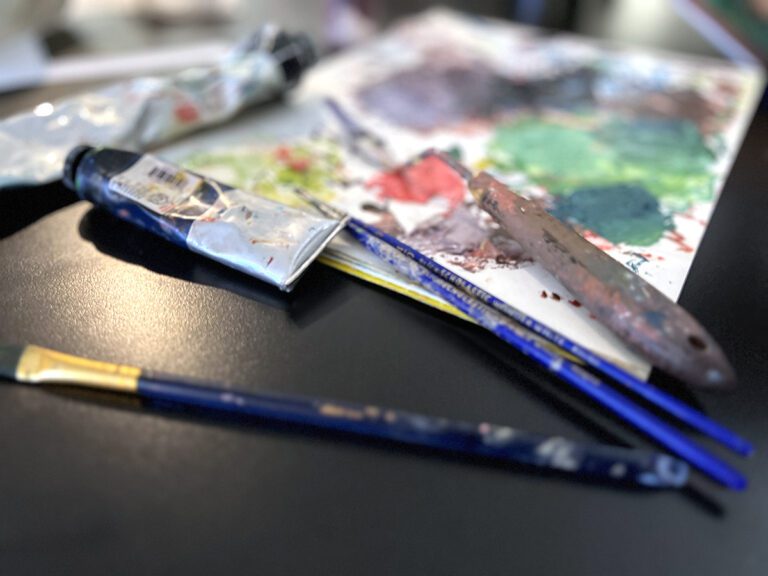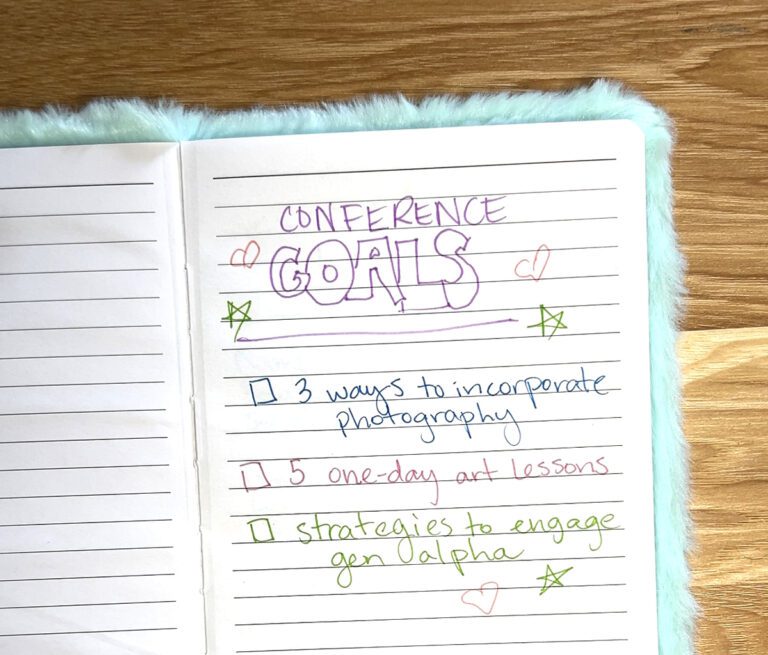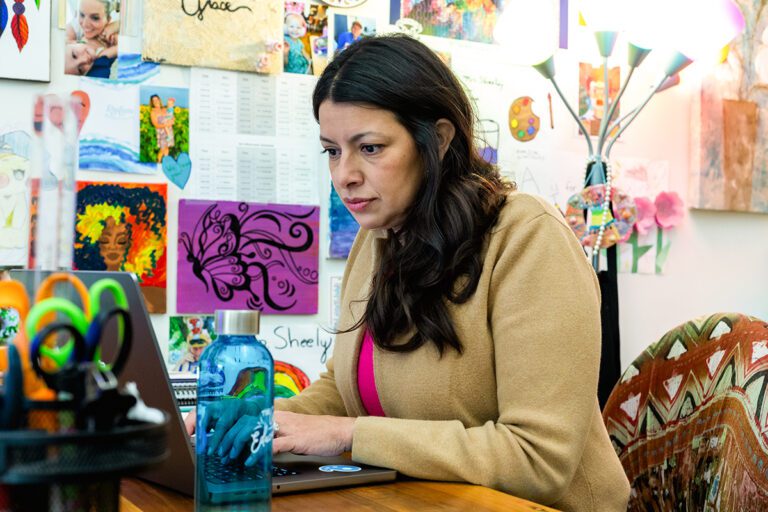Retiring from teaching can be a logistical and emotional challenge. You have invested so much in your vocation. Now, what? Ironically, schools offer a lot of support for new teachers, but not much for those retiring or considering retirement. With planning and preparation, however, you can respond accordingly to ensure an enjoyable final year. Anticipating retirement can also have a positive impact on your school. Your departure from the classroom can better your program and set students up for future success.
Here are 4 helpful tips as you set yourself up for retirement:
1. Embrace your new identity.

As an educator and student, you have been waking up and going to school ever since you can remember. And for the past X number of years, you have answered, “art teacher,” when asked what you do for a living. Being an art teacher at your school has represented a large part of your identity. This will change dramatically when you retire. On the last day of school, you’re an art teacher at your building, and the next day, you’re not. The transition is quick. Fostering your new identity before you retire can help you envision the next chapter in your life and minimize the fear of the unknown. Plus, it will give you a new response each time someone asks, “What are you going to do?”
Consider:

- Volunteering: Giving back can be gratifying and provides an immediate purpose in helping others. Start by researching organizations in your community that align with your interests. Meet with representatives to better understand their mission and how you can be involved. One major perk to volunteering is the commitments typically vary, so you’re able to find something that works with your schedule.
- Teaching: Just because you’re retiring from teaching at a school, doesn’t mean you need to stop educating. Teach through your local park district, colleges or universities, or art studios. Continue sharing your knowledge with others and embrace the absence of meetings and grades!
- Learning: Leaving the classroom as a teacher gives you time to re-enter as a student. Learning new skills and knowledge is important not only for your mental health but also for fun! Re-engage with an old interest or hobby to further explore that passion. Or use your found time to learn something new.
2. Understand your finances.

Transitioning into retirement can be scary if you don’t understand your financial future. Seek counsel from your human resources department, business office, teacher’s association, or an outside financial advisor to help you understand your current and future finances. Start by knowing how your salary can change if you declare your retirement years in advance. You want to take advantage of any salary bumps or benefits that your district offers. Then, plan and budget by understanding how your pension and/or income change after your last day of school and what you can expect on a monthly basis. Knowing how and when your benefits and insurance will change minimizes risk and keeps you covered. Also, be aware of any financial penalties applied for future work in the school system. This can vary by state, but it’s worth knowing if you’re considering returning to education in any capacity.
3. Find a mentor.
With so much looming during retirement, there can be triggers of fear and anxiety. A mentor can help you navigate this unique time in your life. They can empathize with the transition, provide guidance with resources, and answer questions. A positive retirement is different for everyone. A mentor can help you with your individual needs. Mentors should not come from your circle of friends. The objective perspective of an outsider has the ability to be more honest in sharing their opinion. Spend some time reflecting on the areas, like financial or professional; you need the most support. Then, ask your colleagues or peers for any appropriate referrals. Make a phone call or write an email. You will be so glad you did.
4. Exit with grace.
While this sounds obvious, it can be scary to think about the future of your art program without you. This anxiety can cause you to act out emotionally when interacting with your colleagues and students. It is natural to have questions and concerns for the future of your students, classroom, curriculum, and any special projects. You might even wonder if some things do not continue on without you, was it all for naught. By taking a more proactive approach, you can maintain a positive relationship with your school.
- Be A Model: As an experienced, veteran teacher, you already serve as a model for other teachers in the building. Retiring well is one last opportunity to teach younger staff how to exit with dignity and grace.
- Partner With Administration: One of the biggest challenges with retiring is the potential for change. School leaders might use this transition as an opportunity to make changes to facilities, curriculum, and responsibilities. It is important to recognize this is largely out of your control, but you can influence their future decisions through positive dialogue. Engaging in conversation and respectfully asking questions will have the best result. Have transition meetings to understand their future vision. How can you leave things to support those goals? Otherwise, leaders will simply leave you out of the conversation or wait until summer for the change.
- Pass The Torch: A few months after your last day, a new art teacher is going to walk into your room. Help them acclimate by leaving the spaces clean and organized. Go through your filing cabinets and discard outdated copies of materials. Any artifacts or examples you wish to leave as helpful resources should be organized and labeled. Supply closets should also be left organized to help the new teacher better understand their inventory. Cleaning up after you is not a right of passage to being a new teacher.
While retirement comes with an abundance of change, it can be a positive experience. With planning and foresight, a smooth exit is possible. You have given so much of your life to the profession and your impactful career should not end negatively. Through preparation and support, your retirement can be a positive experience.
What are some other ways a teacher’s retirement can go more smoothly?
How can colleagues help support a retiring teacher?
Magazine articles and podcasts are opinions of professional education contributors and do not necessarily represent the position of the Art of Education University (AOEU) or its academic offerings. Contributors use terms in the way they are most often talked about in the scope of their educational experiences.





